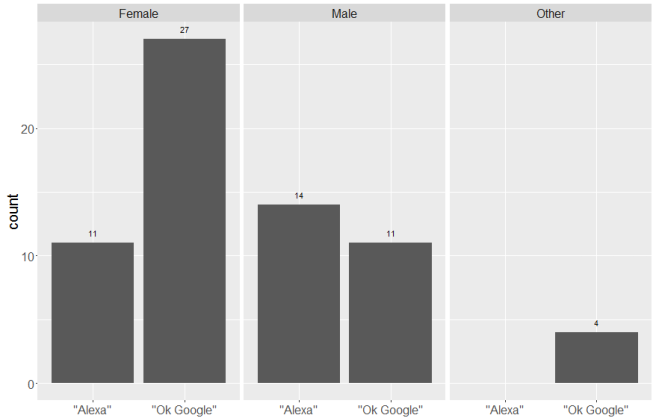From the title, you might think this is a US-centric post. To a certain extent, it is. But I’m also going to be talking about topics that are more broadly of interest: what are some specific benefits of humanities research? And who should fund basic research? A lot has been written about these topics generally, so I’m going to be talking about linguistics and computational linguistics specifically.
This blog post came out of a really interesting conversation I had on Twitter the other day, sparked by this article on the potential complete elimination of both the National Endowment for the Humanities and the National Endowment for the Arts. During the course of the conversation, I realized that the person I was talking to (who was not a researcher, as far as I know) had some misconceptions about the role and reach of the NEH. So I thought it might be useful to talk about the role the NEH plays in my field, and has played in my own development as a researcher.

What does the NEH do?
I think the easiest way to answer this is to give you specific examples of projects that have been funded by the National Endowment for the Humanities, and talk about thier individual impacts. Keep in mind that this is just the tip of the iceberg; I’m only going to talk about projects that have benefitted my work in particular, and not even all of those.
- Builds language teaching resources. One of my earliest research experiences was as a research assistance for Jack Martin, working with the Koasati tribe in Louisiana on a project funded by the NEH. The bulk of the work I did that summer was on a talking dictionary of the Koasati language, which the community especially wanted both as a record of the language and to support Koasati language courses. I worked with speakers to record the words for the dictionary, edit and transcribe the sound files to be put into the talking dictionaries. In addition to creating an important resource of the community, I learned important research skills that led me towards my current work on language variation. And the dictionary? It’s available on-line.
- Helps fight linguistic discrimination. One of my main research topics is linguistic bias in automatic speech recognition (you can see some of that work here and here). But linguistic bias doesn’t only happen with computers. It’s a particularly pernicious form of discrimination that’s a big problem in education as well. As someone who’s both from the South and an educator, for example, I have purposefully cultivated my ability to speak mainstream American English becuase I know that, fair or not, I’ll be taken less seriously the more southern I sound. The NEH is at the forefront of efforts to help fight linguistic discrimination.
- This NEH-funded program will educate teachers on the culture and linguistic character of Appalachia.
- The NEH developed this policy guide to help insure that NEH funded projects are available to speakers with limited English proficiency. Remember: the US doesn’t have an official language!
- This NEH-funded summer institute on translation (happening this summer!) will include a course specifically aimed at helping reduce linguistic discrimination.
- Document linguistic variation. This is a big one for my work, in particular: I draw on NEH-funded resources documenting linguistic variation in the United States in almost every research paper I write.
- The Dictionary of American Regional English (DARE) is a foundational resource in sociolinguistics. I’ve consulted it frequently for this blog, as well as in designing experiments and collecting data for my work. Without significant federal funding, this priceless resource would not exist. And it really is a fantastic record of American English: this project has been documenting American English since 1965. And while you can get your very own copy, you might already have access through your public library (and can request it if you don’t).
- Another great resource is “Do you speak American?”, which is an NEH-funded book and documentary series about varieties of American English. If you’ve never visited their website, you’re in for a treat! There are activities, further readings, and full transcripts of the entire documentary, all based on very solid scholarship.
How does funding get allocated?
- Which projects are funded is not decided by politicians. I didn’t realize this wasn’t common knowledge, but which projects get funded by federal funding agencies, including the NEH, NSF (which I’m currently being funded through) and NEA (National Endowment for the Arts) are not decided by politicians. This is a good thing–even the most accomplished politician can’t be expected to be an expert on everything from linguistics to history to architecture. You can see the breakdown of the process of allocating funding here.
- Who looks at funding applications? Applications are peer reviewed, just like journal articles and other scholarly publications. The people looking at applications are top scholars in thier field. This means that they have a really good idea of which projects are going to have the biggest long-term impact, and that they can insure no one’s going to be reinventing the wheel.
- How many projects are funded? All federal research funding is extremely competitive, with many more applications submitted than accepted. At the NEH, this means as few as 6% of applications to a specific grant program will be accepted. This isn’t just free money–you have to make a very compelling case to a panel of fellow scholars that your project is truly exceptional.
- What criteria are used to evaluate projects? This varies from grant to grant, but for the documenting endangered languages grant (which is what my work with the Koasati tribe was funded through), the evaluation criteria includes the following:
- What is the potential for the proposed activity to
- Advance knowledge and understanding within its own field or across different fields (Intellectual Merit); and
- Benefit society or advance desired societal outcomes (Broader Impacts)?
- To what extent do the proposed activities suggest and explore creative, original, or potentially transformative concepts?
- Is the plan for carrying out the proposed activities well-reasoned, well-organized, and based on a sound rationale? Does the plan incorporate a mechanism to assess success?
- How well qualified is the individual, team, or organization to conduct the proposed activities?
- Are there adequate resources available to the PI (either at the home organization or through collaborations) to carry out the proposed activities?
- What is the potential for the proposed activity to
Couldn’t this research be funded by businesses?
Sure, it could be. Nothing’s stopping companies from funding basic research in the humanities… but in my experience it’s not a priority, and they don’t. And that’s a real pity, because basic humanities research has a tendency of suddenly being vitally needed in other fields. Some examples from Natural Language Processing that have come up in just the last year:
- Ethics: I’m currently taking what will probably be my last class in graduate school. It’s a seminar course, filled with a mix of NLP researchers, electrical engineers and computer scientists, and we’re all reading… ethics texts. There’s been a growing awareness in the NLP and machine learning communities that algorithmic design and data selection is leading to serious negative social impacts (see this paper for some details). Ethics is suddenly taking center stage, and without the work of scholars working in the humanities, we’d be working up from first principles.
- Pragmatics: Pragmatics, or the study of how situational factors affect meaning, is one of the more esoteric sub-disciplines in linguistics–many linguistics departments don’t even teach it as a core course. But one of the keynotes at the 2016 Empirical Methods in Natural Language Processing conference was about it (in NLP, conferences are the premier publication venue, so that’s a pretty big deal). Why? Because dialog systems, also known as chatbots, are a major research area right now. And modelling things like what you believe the person you’re talking to already knows is going to be critical to making interacting with them more natural.
- Discourse analysis: Speaking of chatbots, discourse analysis–or the analysis of the structure of conversations–is another area of humanities research that’s been applied to a lot of computational systems. There are currently over 6000 ACL publications that draw on the discourse analysis literature. And given the strong interest in chatbots right now, I can only see that number going up.
These are all areas of research we’d traditionally consider humanities that have directly benefited the NLP community, and in turn many of the products and services we use day to day. But it’s hard to imagine companies supporting the work of someone working in the humanities whose work might one day benefit their products. These research programs that may not have an immediate impact but end up being incredibly important down-the-line is exactly the type of long-term investment in knowledge that the NEH supports, and that really wouldn’t happen otherwise.
Why does it matter?
“Now Rachael,” you may be saying, “your work definitely counts as STEM (science, technology, engineering and math). Why do you care so much about some humanities funding going away?”
I hope the reasons that I’ve outlined above help to make the point that humanities research has long-ranging impacts and is a good investment. NEH funding was pivotal in my development as a researcher. I would not be where I am today without early research experience on projects funded by the NEH. And as a scholar working in multiple disciplines, I see how humanities research constantly enriches work in other fields, like engineering, which tend to be considered more desirable.
One final point: the National Endowment for the Humanities is, compared to other federal funding programs, very small indeed. In 2015 the federal government spent 146 million on the NEH, which was only 2% of the 7.1 billion dollar Department of Defense research budget. In other words, if everyone in the US contributed equally to the federal budget, the NEH would cost us each less than fifty cents a year. I think that’s a fair price for all of the different on-going projects the NEH funds, don’t you?


